“This is the beginning of a film called The Wonder,” says Niamh Algar’s voice. We see a film set – scaffolded structures within a big studio, similar to the beginning of Pedro Almodóvar’s new short film The Human Voice – as Matthew Herbert’s eerie seascape of a soundtrack swoop, clangs, and swirls. While Algar’s mesmerizing narration continues, the camera slowly moves into one of these sets to rest on Florence Pugh’s face, as Algar’s hypnotic narration continues, informing us: “The people you are going to meet, the characters, believe in their narrative with entire dedication.”
We are aboard a boat in 1862. A decade after the Great Famine, English nurse Elizabeth “Lib” Wright travels to an Irish midlands village to see local child Anna O’Donnell (Kla Lord Cassidy), an apparently healthy 11-year-old who hasn’t eaten in four months. Anna’s parents (whose son has already “gone over”) think it’s a miracle and news of this marvel is starting to spread, with people flocking daily to see the daughter who survives on “manna from heaven”.
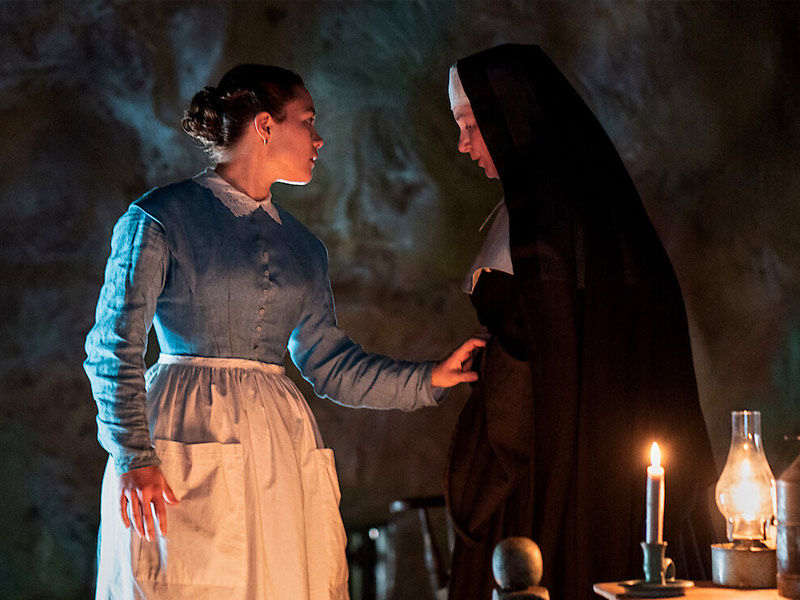
A committee of notables has been formed to authenticate or refute allegations of divine intervention, including the intimidating Father Thaddeus (Ciarán Hinds) and the pseudo-scientific Dr. McBrearty (Toby Jones).
Having worked as a nurse in the Crimean war, Lib has seen her share of tragedies, ministering to dying troops – “a luxury”. Her role here, however, is just to observe; to spend two weeks exchanging eight-hour shifts with Sister Michael (Josie Walker) and determine whether Anna is being fed covertly. Neither observer is permitted to communicate their observations with the other, and neither is permitted to intervene, which contradicts Lib’s personal and professional impulses. Lib is also silently nursing her own sadness, self-medicating her way through sleepless nights.
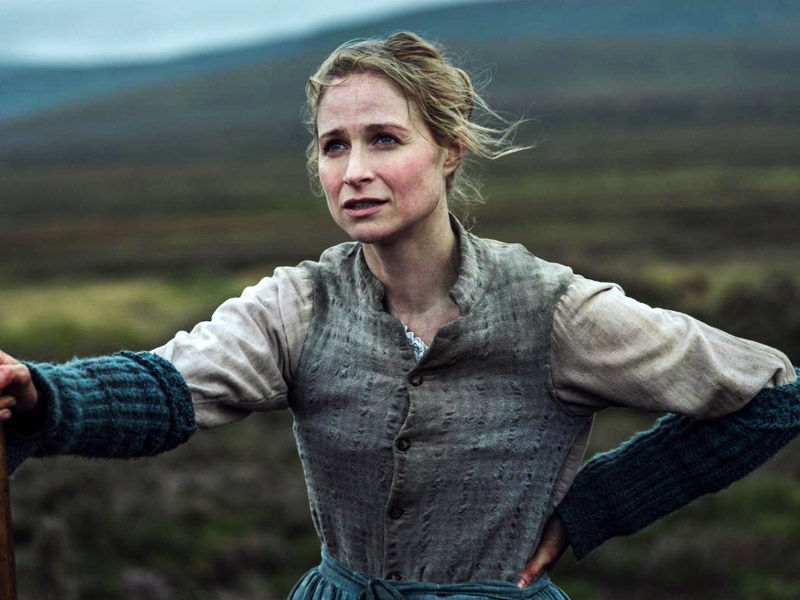
When Lib’s suspicions land on Anna’s mother’s loyal affections (played by Kla’s real mother, Elaine Cassidy), the daughter’s health appears to deteriorate. But is it more vital to discover an empirical “truth” than to safeguard a child from what journalist Will Byrne (Tom Burke) refers to as “murder by degrees”? Is Anna’s fasting a sacrifice or an act of abuse? Where does intellectual certainty meet moral ambiguity?
Each person’s story includes a leap of faith, some disastrous, some redemptive, all linked.
The Wonder is based on Emma Donoghue’s 2016 novel of the same name, who also authored the screenplay for Lenny Abrahamson’s Oscar-nominated 2015 adaptation of her best-selling novel Room. Donoghue co-authored the story with Chilean filmmaker Sebastián Lelio and screenwriter Alice Birch, who penned Pugh’s breakout film, Lady Macbeth. It’s a fascinating creative cocktail.
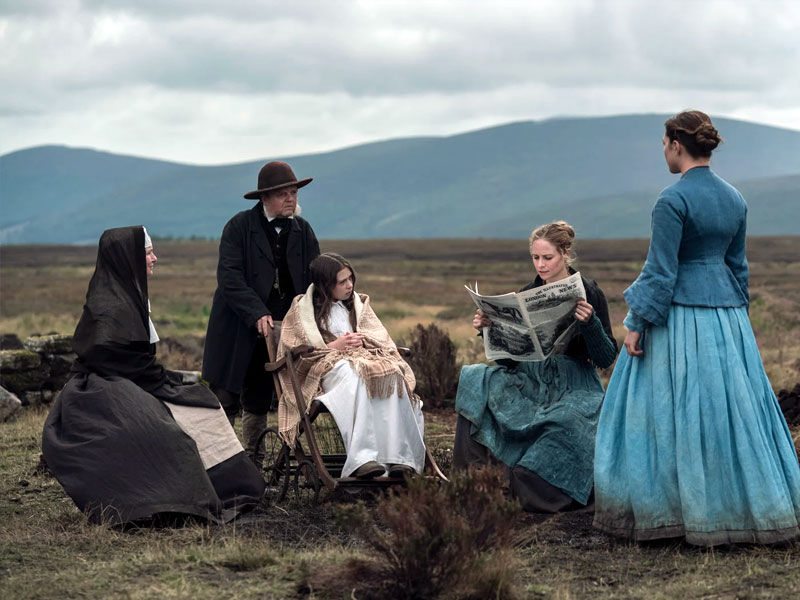
Donoghue claims she was originally inspired by real-life accounts of “fasting girls”, in particular, a case in which “nurses were recruited by the Times newspaper to observe a girl in Wales”, which she describes as an “unholy union of the medical establishment and the media establishment”.
Also read: Moving In With Malaika: A Modified edition of The Fabulous Lives of Bollywood Wives?
Birch (whose ear for dialogue was so acute in the TV version of Normal People) adds a very current feeling of intimacy to this fascinating setting, with exchanges between Lib and Anna (and subsequently with Will) sparking with restrained emotional intensity.
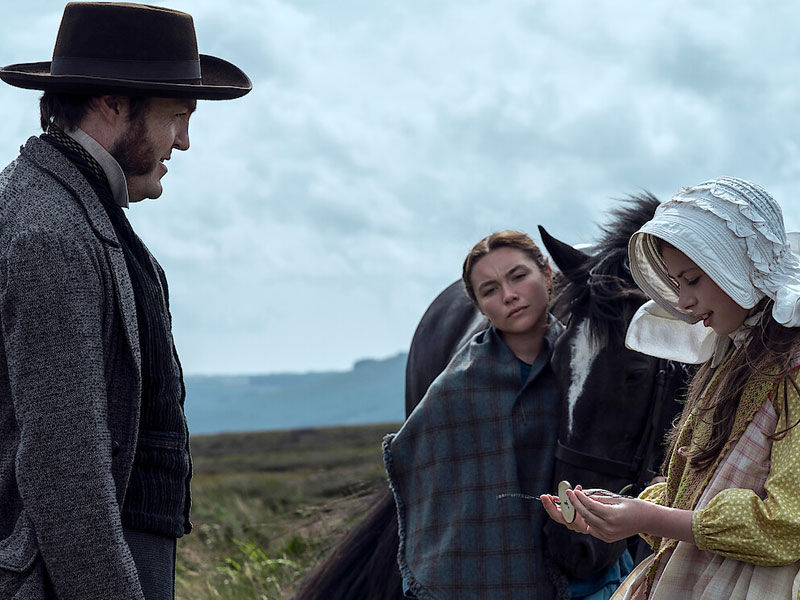
Lelio, who previously investigated the psychodramas of a cloistered religious community in Disobedience, bookends this story of religion and science with a cinematic framing device (apparently inspired by Jean-Luc Godard’s Le Mépris) that draws the audience’s attention to their own desire to believe in fictions – to willingly suspend their disbelief.
“We are nothing without tales,” begins the opening voiceover, as we see characters construct and narrate their own realities throughout. Whether it’s the guilty terror of purgatorial fire or the theoretical promise of harnessed magnetic forces, each person’s story contains a leap of faith – some destructive, some redemptive, all connected.
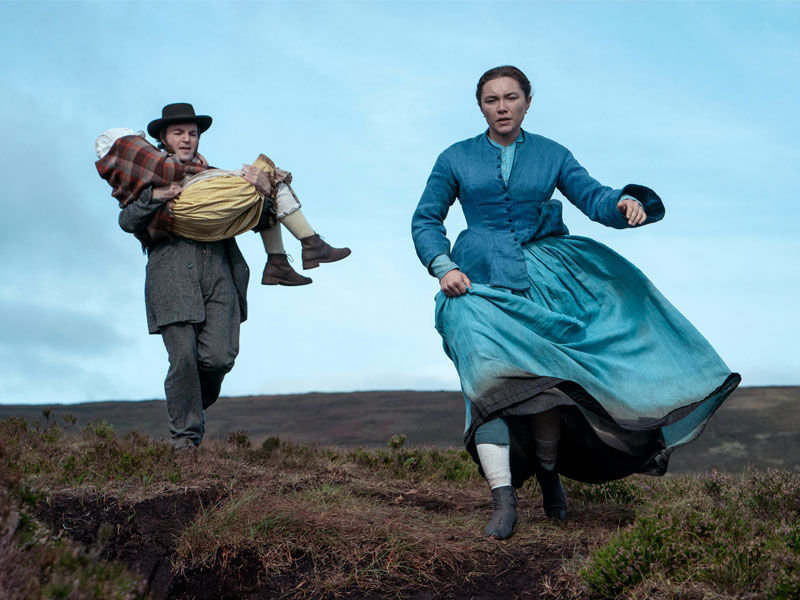
It is entirely up to the viewer to determine whatever tale they take away from The Wonder. I heard echoes of Hans-Christian Schmid’s Requiem, Jessica Hausner’s Lourdes, and Dietrich Brüggemann’s Stations of the Cross – films in which religious beliefs have dramatic bodily effects. Others will perceive the specter of the Irish famine reflected in Anna’s hunger, a factor heightened by Will’s horrible past. Perhaps the true source of the problem is eating disorders and child maltreatment. In any case, few people will be unaffected by this intriguingly ambitious and thought-provoking play.





























